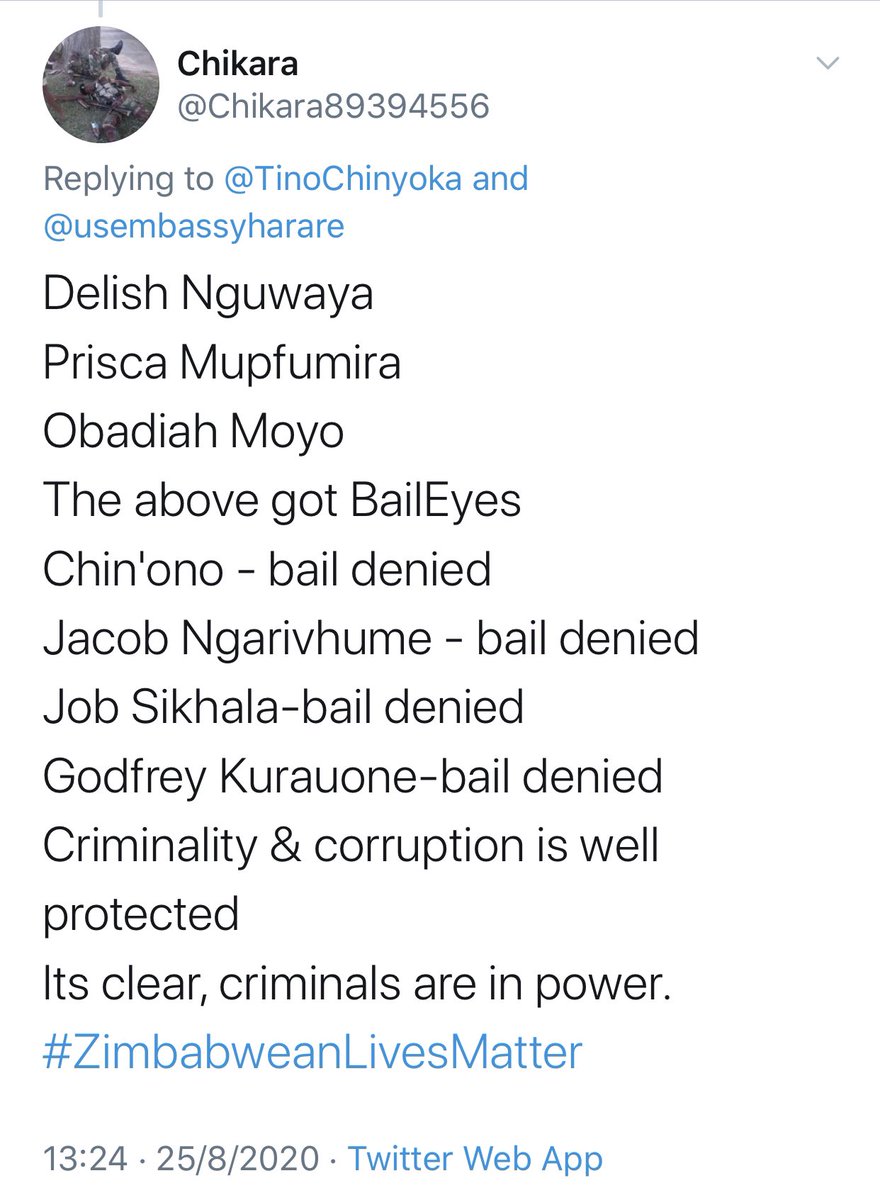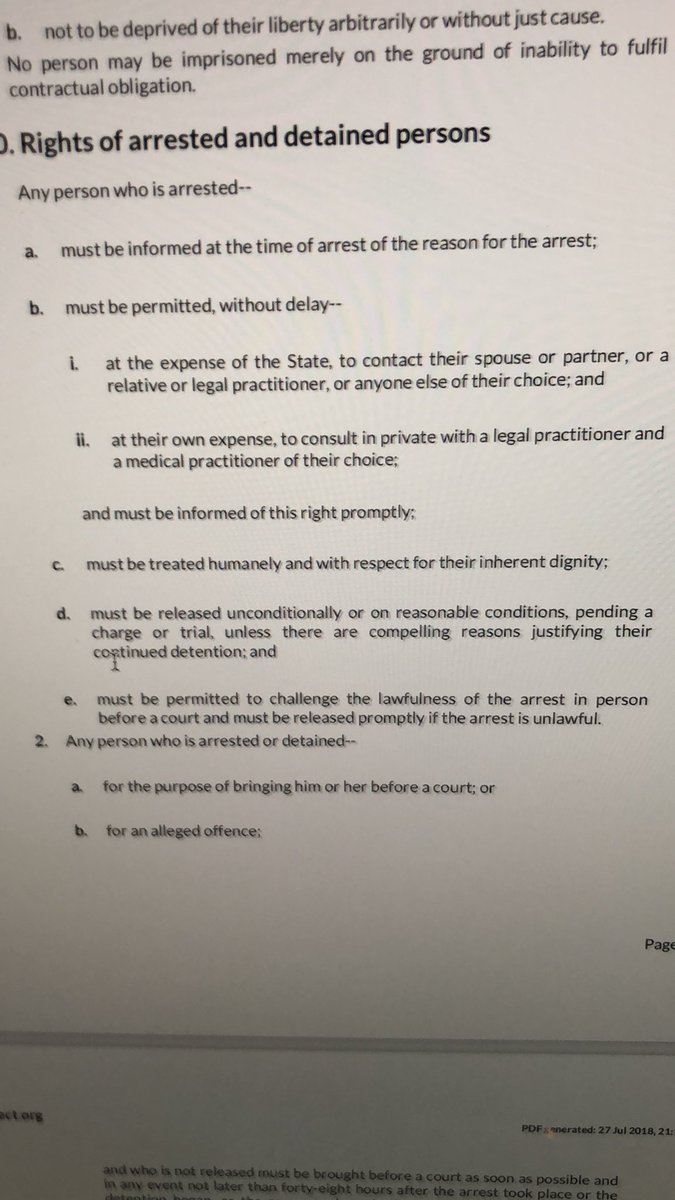1. It is perhaps necessary that some trade issues around Hopewell Chin’ono’s bail matters, clouded by our partisan politics and the deliberate distortion of facts by those with voices that can be heard, be commented on dispassionately:
2. A person who is arrested for an offense and brought to court has a right, if the trial is not going to start and conclude on their first appearance at court, to apply for bail. This is a right enshrined in section 50 of our constitution.
3. This, Hopewell Chin’ono did. The reasons why he was refused bail are captured in the decision by the court, which has been widely circulated. As was his right, the accused appealed to the High Court. Now, this is where the confusion started, helped by the deliberate wordplay
4. of those who support the accused. When the High Court sits to hear a bail appeal, it is not there to substitute its own views for those of the magistrate. The judge does not say: “should l grant him bail,” but rather, “does the refusal of bail have support on the law?”
5. In effect, the High Court will only interfere with the magistrate’s decision if there has been a misdirection or irregularity or if the magistrate’s discretion was exercised so unreasonably that no court applying its mind to the facts would have made such a decision.
6. Another, and easier way of saying that is that even if a High Court judge thinks that she would have granted bail in she was the magistrate, if the magistrate’s decision is legally sound and shows no misdirection and the discretion was properly exercised, the appeal will fail;
7. Also, if new facts occur between the time you lodge an appeal and the hearing, you cannot try to argue the new facts at the appeal, as Hopewell’s lawyers attempted to. The appeal is to assess if the Magistrate was right, he cannot be assessed on facts that were not before him.
8. So, when you have new facts that occur before an appeal hearing, the wise thing to do is to abandon the appeal and argue those new facts once again before the Magistrate, then if you fail you take everything on appeal. This is basic, every lawyer focusing only on their client
9. and not personal renown or identification with the client’s cause, knows this. Basic Bail Appeals 101 will tell you that the word “appeal” is not for decoration, you cannot raise new facts on an appeal. It’s not a bail application, but a bail appeal. Very different.
10. But if you do try, as they did, & the judge says “the accused raised new facts/changed circumstances, & l find that these must be raised with the magistrate court”: this DOESN’T MEAN that the judge has made a finding that you in fact have “new facts or changed circumstances”
11. It just means you can go and raise what you allege are new facts or changed circumstances in the magistrate’s court. It is the duty of the magistrate’s court to then make a determination whether what you allege are in fact new facts or changed circumstances justifying bail
12. When dealing with bail application/appeal, the court must strike a balance between the right of the accused to not be detained before he is found guilty and the public need to ensure that accused persons do not abscond, which has happened recently.
13. There is a presumption in favour of granting bail, but factors that military against such a grant include the nature of the charges, the severity of any possible penalty, the strength/weakness of the state’s case, accused’s ability to reach foreign countries that won’t return
14. him back for trial, and the accused’s previous behavior, the credibility of the accused’s own assurance of his intention and motivation to remain and stand trial, all play a part. Crucially
15. so does a well founded risk of interference with investigations. For example, if one is charged with incitement via a Twitter account and they promptly delete said account and claimed that they never had it, is that someone likely or unlikely to interfere with investigations?
16. Court can refuse bail if there are high chances of conviction &upon conviction; a long prison sentence, or the availability of foreign friends with means openly challenging the proprietary of the prosecution, bcoz then the risk of absconding if granted bail is irresistible
17. What does all this mean? Only this: lawyers must focus on clients not personal renown, and @euinzim @TimoOlkkonen @usembassyharare etc aren’t helping their friends by showing a partisan disregsrd to what is, in terms of the law & the facts, a perfectly reasonable prosecution.
18. The rule of law requires that even those who feel they are in the right respect those institutions set up to protect it. It is not enough to believe that one is right, but to actually be right. We are never certain of that when we are partisan. The law must be allowed
19. to take its course. Our judiciary cannot function if it is routinely undermined by those that claim to be its victims. Or their powerful friends, who expect from us a lot more than they do where they come from. It harms on us, not they.

 Read on Twitter
Read on Twitter




